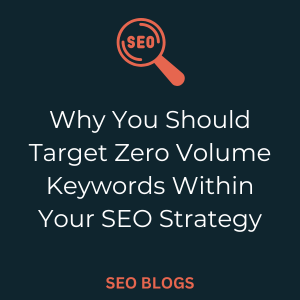When carrying out SEO keyword research, you’ll probably start with high search volume, low-competition keywords – and that’s great because these are popular keywords covering topics that users want to know about. So why should you bother targeting low volume keywords?
Zero volume keywords can often be overlooked in your SEO strategy, however targeting these low volume keywords can be very strategic and beneficial. In this blog we will be discussing what zero volume keywords are, why you should be targeting them within your SEO strategy and how to effectively incorporate them.
What Are Zero Search Volume Keywords?
Zero search volume keywords are search terms that, according to keyword research tools, have little to no monthly search volume meaning these particular keywords are not frequently searched for by users. However, despite their apparent lack of popularity, they can be highly valuable for your SEO strategy.
Why You Should Target Zero Volume Keywords
According to Google, 15% of searches that they see every day are brand new searches, never seen before. There are trillions of searches on Google every year so 15% is an extremely high number, and all of these keywords will have zero search volume but could still be extremely valuable to target and here’s why:
- ➡️ Less Competition
One of the biggest benefits of targeting zero volume keywords is the significantly reduced competition. A large proportion of zero volume keywords will be low competition as well as low volume meaning you will be more likely to rank highly for these terms.
- ➡️ High Intent
Often, low search volume, low competition keywords are long-tail keywords that are more specific and relevant to users. For example, the term “garden furniture” has a monthly search volume of 141,000 and is deemed ‘hard’ to rank for. However, if you take this keyword and make it more specific, for example “brown wooden garden furniture” which has a monthly search volume of 0-10, you are targeting a much more specific item and the user is more likely to be a high intent user if they are searching for that term rather than a generalistic term.
While “garden furniture” has a lot more search volume, and you will likely gain more traffic, if you are selling brown wooden garden furniture, you will want to be targeting users who are looking for that specific product. With the right high intent keywords, you could see your conversion rate and revenue increase even with less traffic.
Zero volume keywords often do reflect very specific queries with high intent, and users searching for these terms are often looking for very particular information, products or services. It is likely that these users are going to be further down the sales funnel and by targeting these keywords, you can attract a highly targeted audience that is more likely to convert.
- ➡️ Future Trends
Zero volume keywords can sometimes indicate emerging trends and as new topics gain popularity, search volumes will naturally increase. By targeting these keywords early, before any of your competitors, you can use your expertise and position yourself as an authority in your niche before your competitors catch on. By creating authoritative, helpful content and getting it to rank well before search volume increases, you can have already gained valuable traffic and be in the best position when more users start searching for the same queries.
How To Find Low Volume Keywords
The first step in utilising zero volume keywords in your SEO strategy is to find them. Below are some tips for conducting keyword research for these low volume search terms:
- ➡️ Use keyword research tools
Keyword research tools such as Ahrefs, Google Keyword Planner and SEMrush can help you to identify zero search volume keywords. These tools allow you to filter keywords based on their search volume and keyword difficulty and can help you to identify potential zero volume keywords to target in your SEO strategy.
- ➡️ Look for long-tail keywords
Long-tail keywords are more specific than broad search terms and they can often have lower search volumes but be extremely relevant to your target audience. Looking for these long-tail keywords will allow you to target your content to match high intent keywords.
- ➡️ Analyse your website’s search queries
Analysing queries that are driving traffic to your website will be a great way to find keywords that are extremely relevant for your users. You can use Google Search Console to look at queries that are driving traffic to your website and you can then look for the queries that have low search volume but drive a high click through rate to find relevant, high intent, low volume keywords that you should be targeting within your SEO strategy.
- ➡️ Conduct a competitor analysis
Analyse your competitors’ websites to see what keywords they are targeting and look for any gaps or opportunities where you can target zero volume keywords that you may have missed.
Once you have compiled a list of zero volume keywords, you can then start optimising your website to target these keywords and bring in high intent traffic to your website.
How To Incorporate Zero Volume Keywords When Optimising Your Website For SEO
Now that you have a thorough list of zero volume keywords that are extremely relevant to your offering, you can incorporate them into your SEO strategy.
The following tips will help you when optimising your website for targeting zero volume keywords:
- ➡️ Use keywords in your content
In order to target the zero volume keywords from the previous list you have created, you should use these keywords naturally throughout your content. You can create blog posts answering specific queries, or include keywords in product descriptions. Including zero volume keywords naturally in your content will help you to target and rank for these highly relevant and targeted keywords, just ensure you don’t keyword stuff.
- ➡️ Optimise meta data
Incorporate your keywords into your page titles and meta descriptions to help Google and other search engines understand the relevance of your content for specific keywords, queries and topics.
- ➡️ Focus on quality content
When creating content that is targeting zero volume keywords, it is important to create high quality content that is helpful for your users. While it is likely going to be easier to rank for low volume keywords because they do typically have a lower keyword difficulty, it is still vital to create quality content that is answering your users questions and meeting their needs.
- ➡️ Use internal links
Use internal linking to connect content throughout your website. This can be particularly useful when you are creating blog content that is targeting long-tail keywords that are giving users further information about your product or service – linking these blogs to the main service or category page can not only act as a great CTA for users but it will also help distribute link equity to your important pages.
- ➡️ Monitor performance
Once you have optimised your website and targeted your list of zero volume keywords, you should regularly monitor the performance of how these keywords are performing. Use tools like GA4 and Google Search Console to track traffic, engagement, conversions and revenue to see how your webpages are performing and which zero volume keywords are bringing in high intent, converting traffic. This will help you to adjust your strategy based on the data to continuously improve your SEO performance.
Summary
Targeting zero volume keywords can be a game changer for your SEO strategy. By focusing on low volume, low competition, high intent keywords, you can attract targeted users and potentially increase conversions and revenue for your business. Targeting zero volume keywords shouldn’t be your entire SEO strategy but by incorporating them in your strategy and focusing on only relevant keywords, you can easily boost your overall SEO performance.
To find out more or to receive help with incorporating zero volume keywords into your SEO strategy, get in touch with us today and our team of SEO experts can help take your SEO game to the next level.

